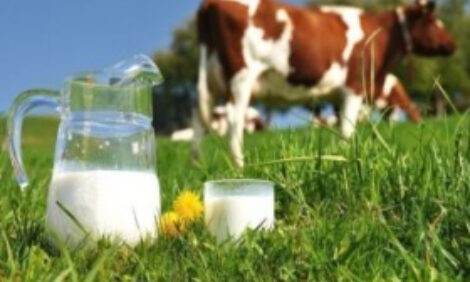



McDonald’s Canada Moves One Step Closer to Sourcing Sustainable Beef
CANADA - McDonald’s Canada is one step closer to purchasing Canadian beef from verified sustainable sources thanks to a pilot project which has begun on-site verifications of beef operations across Canada.McDonald’s – which already sources all of its beef for its Canadian operations from Canadian producers - announced a year ago that it is committed to begin purchasing a portion of its beef from verified sustainable sources in 2016, writes Angela Lovell for TheCattleSite.
Since then it has developed its pilot verification project in consultation with multiple stakeholders, including beef producers and the Canadian Roundtable for Sustainable Beef (CRSB).
36 Indicators
The McDonald’s pilot program uses more than 30 different indicators to assess a cow-calf, fed cattle and primary processors, based on five principles for sustainable beef production developed by the Global Roundtable for Sustainable Beef (see sidebar).
“It’s a McDonald’s initiative but it has implications for the beef industry globally,” says Jeffrey Fitzpatrick-Stilwell, Senior Manager of Sustainability for McDonald’s Canada. “It’s the biggest, most in-depth pilot project of this type to date, and our process allows producers to demonstrate how they’re achieving positive outcomes under those five global principles. We’ve been learning as we go, and are trying to ensure that we have a robust, credible, and scalable process.”
Just over 20 verifications are completed, but more than 100 producers have expressed interest, which has exceeded the company’s initial expectations, says Fitzpatrick-Stilwell. By the end of the pilot program in April 2016, McDonald’s hopes to have verified around 300 beef operations across Canada. “We want to have wide geographic diversity and different sizes of operations, so we can see how the verification process worked in different situations and provinces,” says Fitzpatrick-Stilwell.
Where Food Comes From, an independent company specializing in verifications and certifications for the food industry, is performing the on-farm verifications. The process takes around four to six hours, and the verifier goes through all 36 indicators with the producer, assessing a score for each one, but it’s not a simple yes/no process, says Fitzpatrick-Stilwell.
“It’s a discussion that allows the producer to take the verifier through the operation and demonstrate how he or she is achieving positive results in various different areas. A report is then generated with a final score attached to it that’s sent back to the producer, which shows how they scored on the different indicators, and allows them to identify some areas of opportunity to do some things differently.”
Forerunner of a National Programme
McDonald’s will share outcomes of the verification pilot project with the CRSB to help it develop an ongoing, national sustainable beef verification program. “We will be able to deliver good lessons learned from this pilot project to the CRSB, which has just formed a transition committee that’s going to work on what elements from this Mc Donald’s pilot process they want to take on as they look to build a national program,” says Fitzpatrick-Stilwell.
The CRSB has just completed its own life-cycle analysis and sustainability assessment of the Canadian beef industry and the results from that will help Mc Donald’s tweak the pilot project.
“CRSB is just beginning to share some of its preliminary findings with us so we can modify our indicators to make them more representative of Canadian production realities,” says Fitzpatrick-Stilwell. “We’ll then re-score the verifications done so far based on the finalized indicators. It’s a little premature to be able to say exactly what the final scoring is going to look like, but the producers who have volunteered to do this are certainly engaged and active producers. So we anticipate some pretty high scores from these producers.”
Benefits for Producers
For the producers who are participating in the pilot the benefits go much further than just getting a free, third-party verification of their operations to validate the good practices that they already are doing, says Fitzpatrick-Stilwell. “It’s also setting them up for success, because when this process is adopted by the broader industry, they will already have gone through this process and understand what’s needed under a Canadian verified sustainable beef program.”
McDonald’s Corporation has a long term goal to source everything in a verified sustainable manner, says Fitzpatrick-Stilwell. “The end result of this pilot project is going to be a way to measure, verify and communicate to customers that our commitment to sustainable sourcing covers everything we source from the packaging to what’s in the packaging through the whole McDonald’s sourcing chain worldwide.”
What is Sustainable Beef?
The Global Roundtable on Sustainable Beef recognizes five principles for sustainable beef production and delivery throughout the whole beef value chain:
- Natural Resources management– environmental stewardship; employ practices to improve soil health, air quality, ensure water quality and quantity, and reduce net greenhouse gas emissions; conserve forests and grasslands; preserve healthy ecosystems; maintain and enhance biodiversity; sustainably produce feed sources.
- People and the Community; businesses and organizations respect human rights, conduct business with integrity and in compliance with applicable laws and regulations; engage and support local communities; adopt a safe and healthy work culture; provide legal minimum wage and opportunities for career development; respect cultural heritage; respect land and property rights.
- Animal Health and Welfare; adequate feed and water to meet cattle’s physiological needs; balanced diet to maintain good health; identify and responsibly treat health problems; minimize undue stress, pain, injury and disease; ensure an environment conducive to good health and normal behaviour; ensure transport and handling procedures, and procedures at processing plants are consistent with internationally accepted animal health codes or guidelines.
- Food; ensure food safety and beef quality which is paramount to consumer perception and economic viability; reduce food waste and reuse or recycle wherever possible.
- Efficiency and Innovation; select and manage cattle to continually optimize resources and suit their environment while meeting market demand and consumer preferences; maximize product value and carcass utilization; responsibly and efficiently manage water and land resources; optimize energy use; optimize feed and forage use; safely and responsibly use pharmaceutical, nutrients and chemicals; continually innovate and responsibly use new technologies leading to practices to adapt to changes in climate, resources and market conditions; enhance sustainable beef production through education, extension and partnerships.
TheCattleSite News Desk


